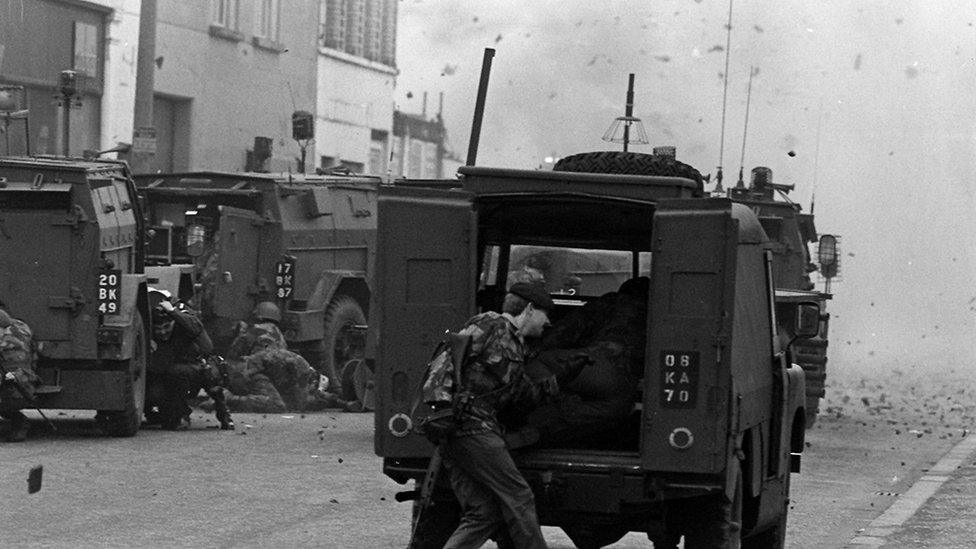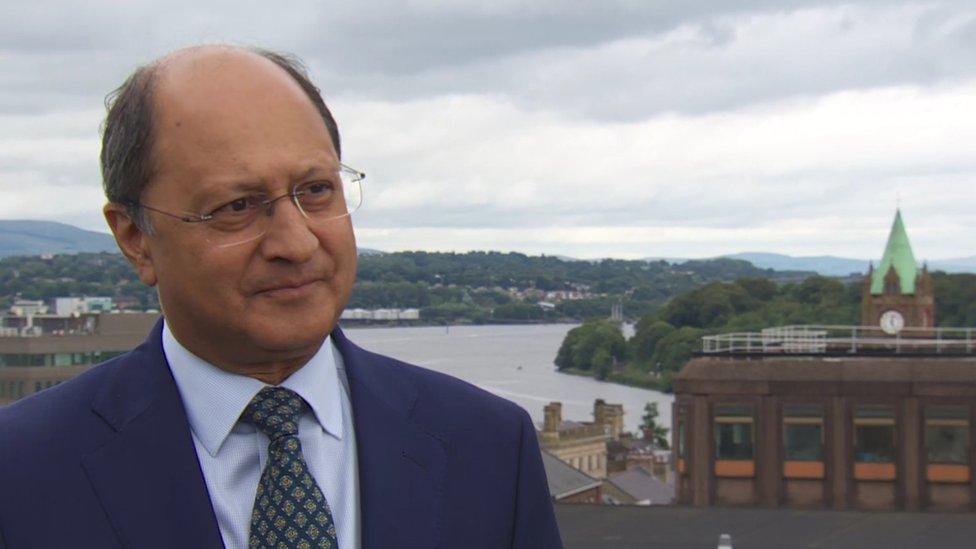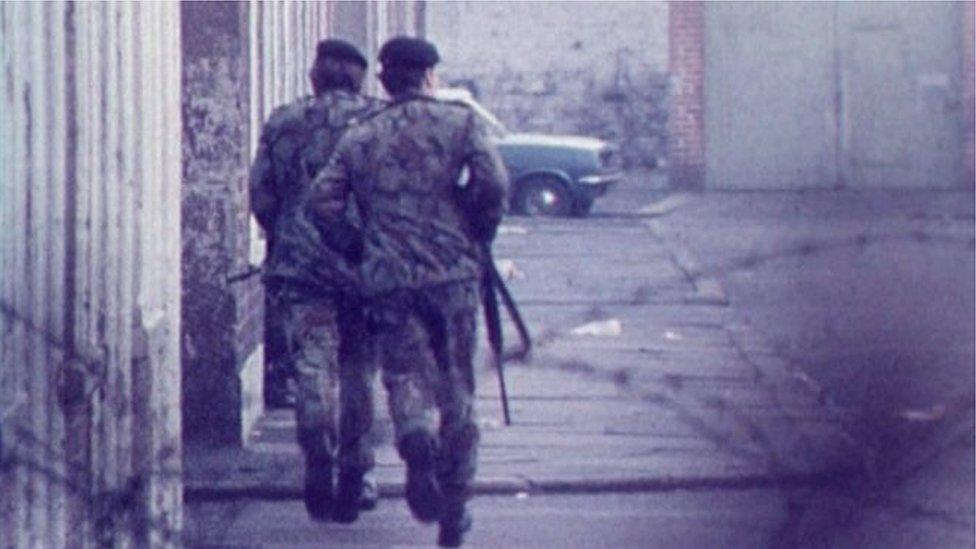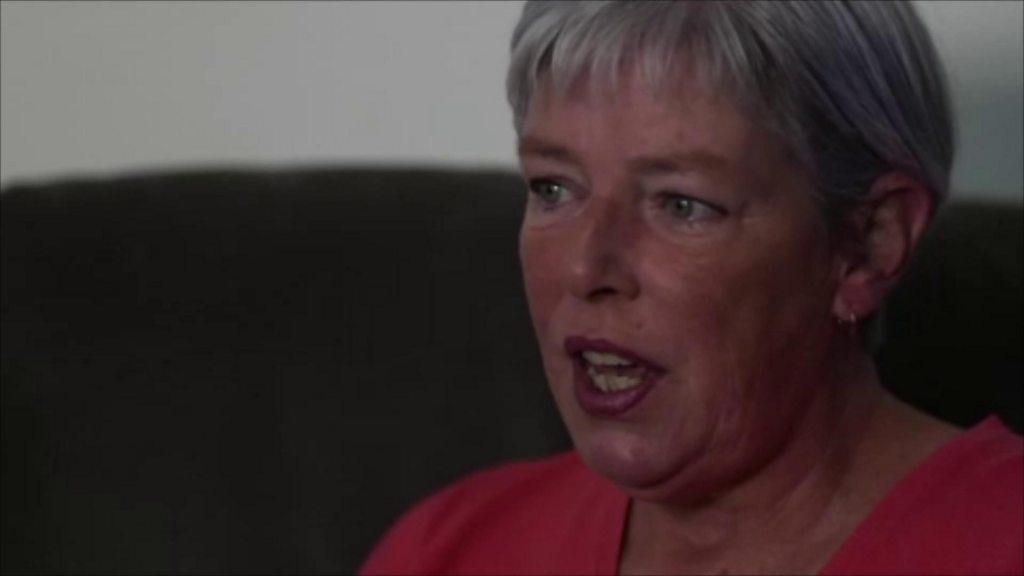NI Troubles: Changes to be made to controversial legacy bill
- Published

Chris Heaton-Harris said the bill would return to the House of Lords in a couple of weeks' time
The government is to make changes to its controversial Troubles legacy bill, the NI Secretary has said.
Speaking at Northern Ireland questions, Chris Heaton-Harris confirmed the bill would return to the House of Lords "in a couple of weeks".
The bill offers a conditional amnesty to those accused of killings and other Troubles-related crimes.
He added the government would continue to engage with victims' groups who oppose the bill to gauge improvements.
Mr Heaton-Harris has not specified what the changes will be.
Asked if the government accepts analysis that it is "fatally-flawed" in respect of complying with the UK's human rights obligations, Mr Heaton-Harris told MPs: "I'm going to make changes to it."
"This is never going to be a perfect solution to this particular problem because no perfect solution exists," he continued.
"I'm quite sure this is the last legislative vehicle that any government will try to address this problem with.
"So I do think it is very important for me to use all the time that we have to improve the bill."
In May, the government introduced legislation that aims to draw a line under the conflict by dealing with so-called legacy issues.
It is an attempt to deal with more than 1,000 unsolved killings.
Victims' groups and political parties at Stormont are opposed to the bill, arguing it will remove access to justice for victims and their families.

The bills offers a conditional amnesty to those accused of killings and other Troubles-related crimes
The previous Northern Ireland Secretary Shailesh Vara said the government was open to making changes to the bill in August.
Under the legislation, immunity from prosecution will be offered to those who co-operate with Troubles investigations run by a new information recovery body.
The Independent Commission for Reconciliation and Information Recovery (ICRIR) will be headed by a judicial figure appointed by the government.
It will accept applications for immunity for five years.
After that time, reviews will not be able to be requested but the ICRIR will continue to work through uncompleted cases.
A panel within it will be responsible for deciding if a perpetrator qualifies for immunity.
Once granted, it cannot be revoked.
It will still take months before the legislation makes it into law and takes effect.
Related topics
- Published18 August 2022

- Published4 July 2022

- Published29 June 2022

- Published24 May 2022
